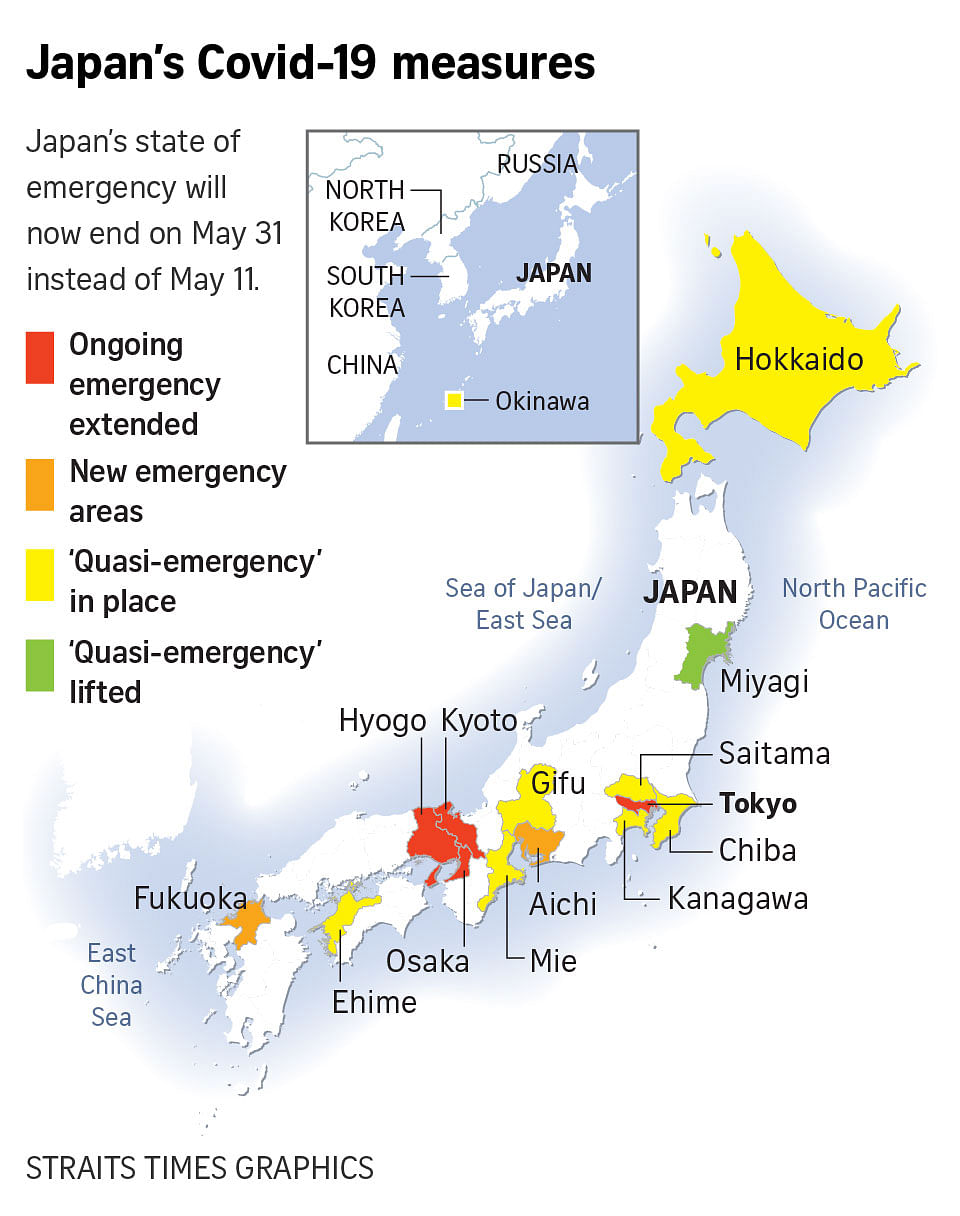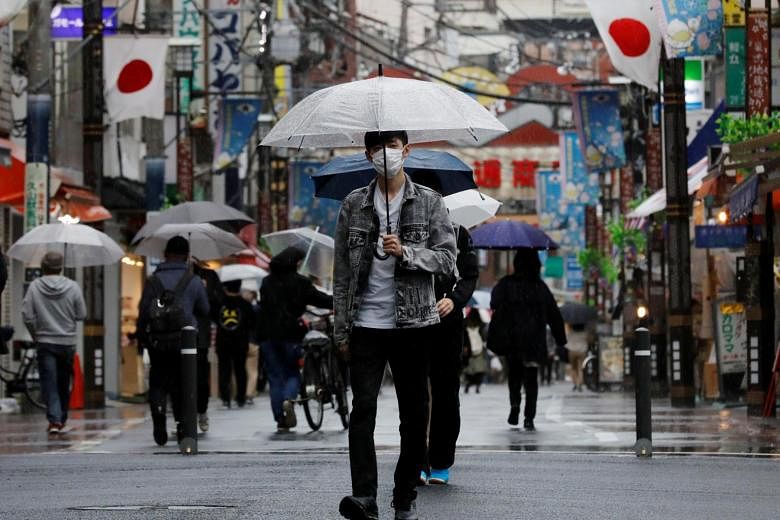TOKYO - Japanese Prime Minister Yoshihide Suga on Friday (May 7) prolonged a state of emergency that was due to expire next Tuesday to May 31, as public pressure mounts for the Olympics to be called off.
An online petition has drawn over 230,000 signatures in just two days, arguing that Japan's dire lack of medical resources means the Games will endanger healthcare workers, citizens and participants.
Dr Masaya Takahashi, the head of Tachikawa Sogo Hospital in Tokyo, posted messages on hospital windows saying enough was enough. "Give us a break. The Olympics are impossible!"
Tokyo Olympics chief Seiko Hashimoto also admitted on Friday that the emergency extension means a planned visit by International Olympic Committee (IOC) president Thomas Bach this month was "very difficult".
As reporters repeatedly questioned the wisdom of the Games at a news conference yesterday, Mr Suga insisted that the Games will be safe, with athletes to be given priority vaccinations as agreed with the IOC.
He added that strict movement controls of all athletes and visiting delegations will be in place so that contact with the public is kept to the minimum.
Yet it is unlikely that this will satisfy a public that is both sick of Covid-19 curbs and increasingly impatient to be vaccinated.
To this, Mr Suga vowed to ramp up inoculations with a target of a million doses a day, such that all senior citizens who wish to be vaccinated can get their two doses by end-July. It is now delivering about 200,000 shots a day, and mainly to front-line workers.
He also apologised to those who "continue to bear the burden of emergency measures", which he said are "targeted and expected to be highly effective".
The current emergency measures, which have been ongoing since April 25 in Tokyo, Osaka, Kyoto and Hyogo prefectures, will be extended from May 11 to May 31. It will also be expanded to Aichi and Fukuoka.
The six areas are home to 43.4 million people, or 35 per cent of Japan's population of 125.4 million across 47 prefectures.
In these areas, eateries and bars are requested to observe an 8pm curfew on dine-in services and a ban on alcohol sales.
Another eight prefectures, including Hokkaido and Okinawa, are separately under looser "quasi-emergency" measures.
Japan on Friday logged at least 6,054 cases, led by 1,005 infections in Osaka and 907 in Tokyo. A record 1,131 patients were in serious condition, while 148 people died in a fresh single-day high.
Nine prefectures reset their one-day counts - Aichi, Fukuoka, Fukushima, Gifu, Ishikawa, Kagawa, Oita, Okayama and Saga - suggesting that the virus may already have taken root outside areas under the emergency decree.













